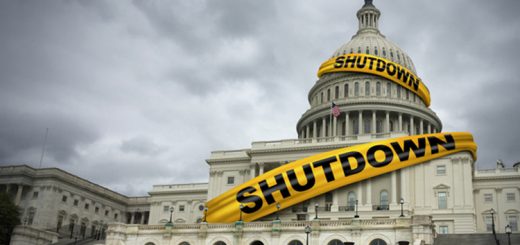Not paying the bill isn’t the same as controlling cost.
With the summer being so hot if you’re not happy with your electric bill, I have an idea that will dramatically lower your cost. When you get your July bill, just don’t pay it. Or, just pay what you feel comfortable paying. That way, you can tell your spouse that you have significantly lowered your home cooling cost for July. You’ll be a hero.
For a little while.
Of course, you won’t be such a hero when the inevitable electricity shortage arrives in August or early September. It will still be hot by then and you’ll have a much more difficult time keeping your house cool once they’ve cut off your electricity.
What does this ridiculous illustration have to do with anything?
It has to do with one of the central tenets of the health care reform package that was just approved by the House Ways & Means Committee.
One of the purported benefits of the health care proposal making its way through Congress is the idea that by consigning responsibility for payment to a single entity run by the government, the sheer scale will be instrumental in controlling cost.
But it won’t work that way. The government’s way of “controlling” health care costs is by refusing to pay. It’s no different than you refusing to pay your electric bill except for the fact that you lack the coercive force of government to compel providers to take whatever payment that is offered.
If you want an example, just look at Medicare. The government is the sole supplier of payments for health care delivered to virtually all Americans over the age of 65. And the way Medicare “controls” costs is by dictating the price that doctors and hospitals may charge. If you are over age 65 and you see your doctor, the amount he receives from Medicare is set by the Congress. He can’t charge more and you can’t offer to pay more.
And every year, Medicare lowers reimbursements to doctors and other health providers.
As the population ages and more baby boomers cross over the age 65 threshold, don’t be surprised when more and more doctors decide not to take Medicare patients. The government may control the money for elder health care, but doctors still control the supply.
Refusing to pay is not the same as controlling costs.
But that’s exactly what the health care plan intends to do.
And when you take the Medicare model and apply it to everyone regardless of age, you will find that as the government “controls” costs by lowering payments, fewer and fewer people will choose to enter the field of medicine, fewer companies will be willing to invest the capital to develop new medical technologies and new therapies and people of all ages and incomes will have fewer options for seeking the health care that they need.
Our health care is the best in the world no matter what any politician tells you. Despite massive distortions as a result of the government’s already huge role in what started as a free market for medicine, we still are the bright light in the world for medical research and innovation.
When the federal government begins “controlling” costs by refusing to pay, all of that will come to an end.
Imagine if the government “controlled” the cost of food by dictating what the grocery store could charge. What would your supermarket look like then? If government set the prices for food, do you really believe that you would have the nearly overwhelming choices for your family’s dinner table that you have now?
Government can never control costs. Government can only dictate payments. Costs are controlled by free markets. Supply and demand is not a cliche.
That’s why Americans have the best health care in the world and that’s why we cannot afford the health care “reform” that’s being debated in Congress right now.









I doubt it ever will get fixed thanks to soft, touchy feely parents, (usually just one) and the government (AKA…
P.T. Barnum, the great American entertainment entrepreneur once said, "Once people stop buying tickets, they don't stop". This saying can…
One thing keeps coming to mind... When taxes become so high that people can not afford to live there and…
Democratic political thought has revolved around peddling free stuff for so long that they don't have any other tricks left.…
I have no idea when the spark of intelligence will fire, but I am not holding my breath!